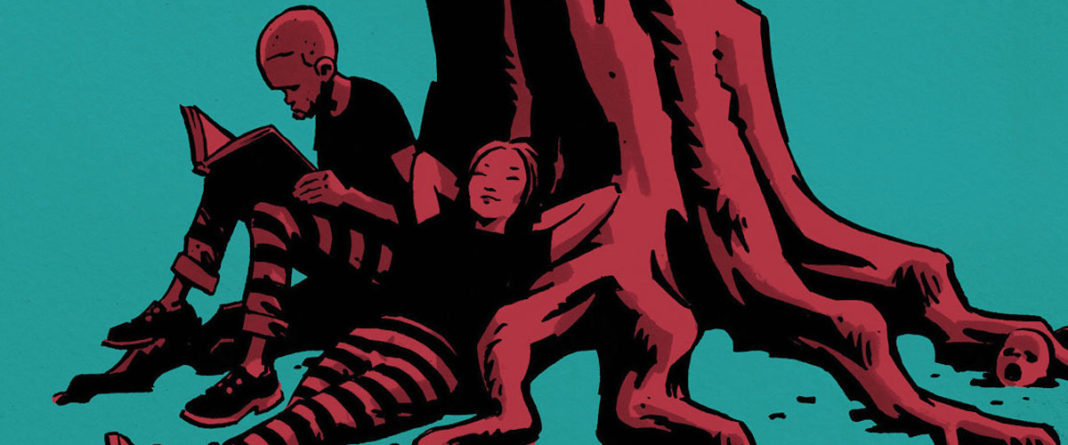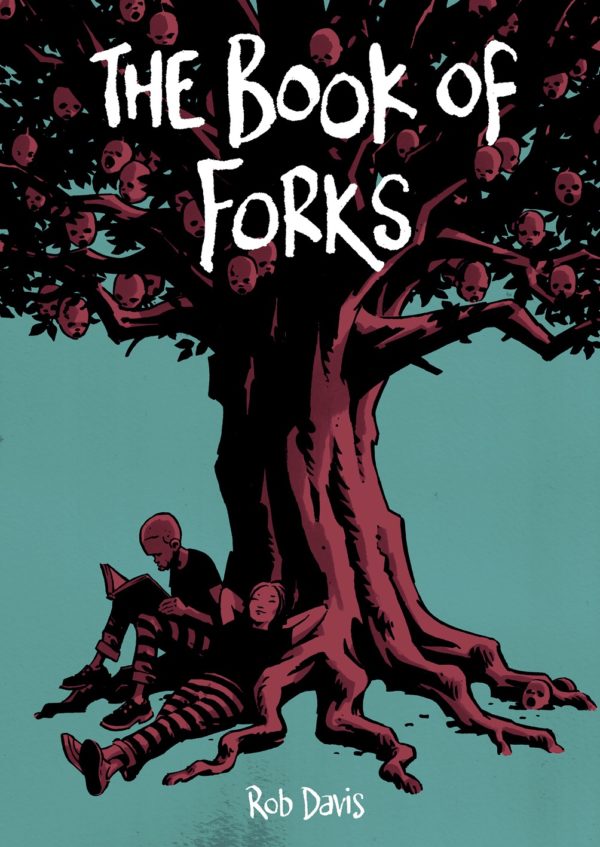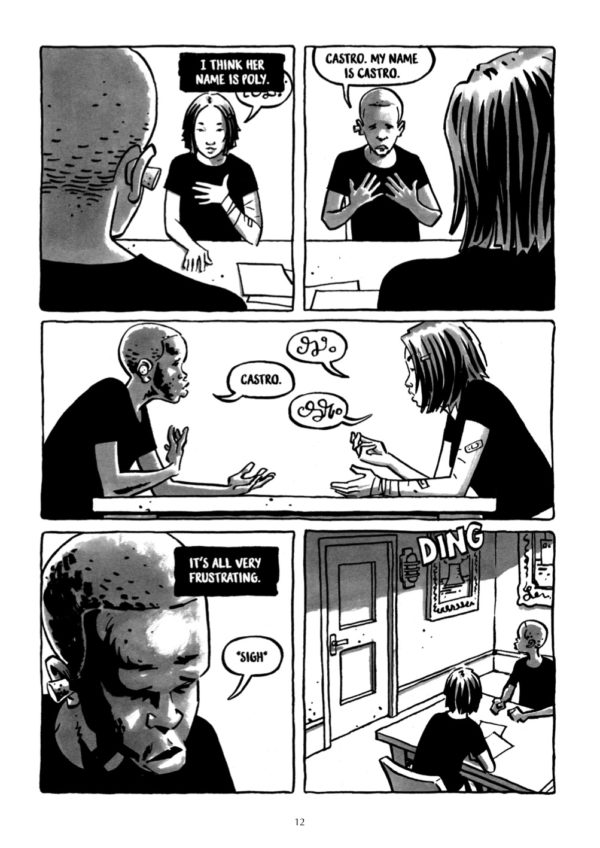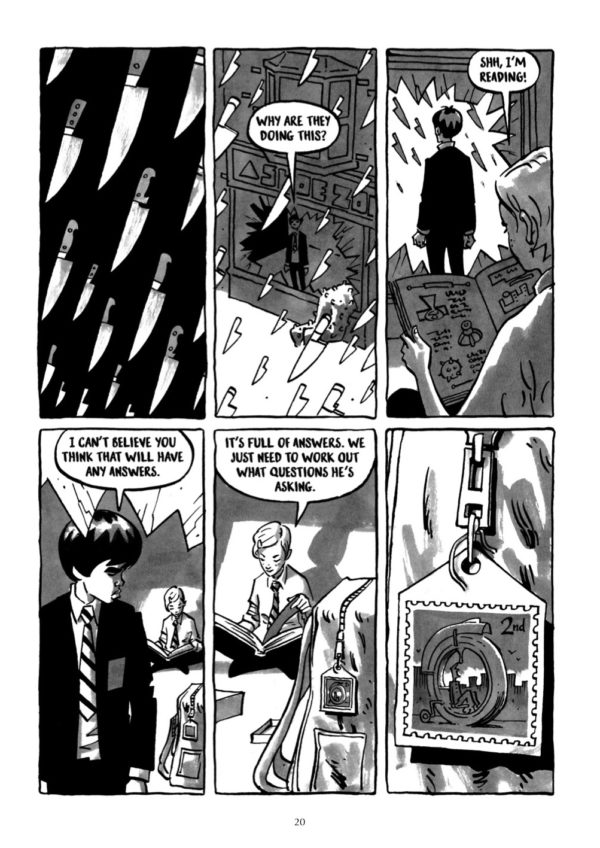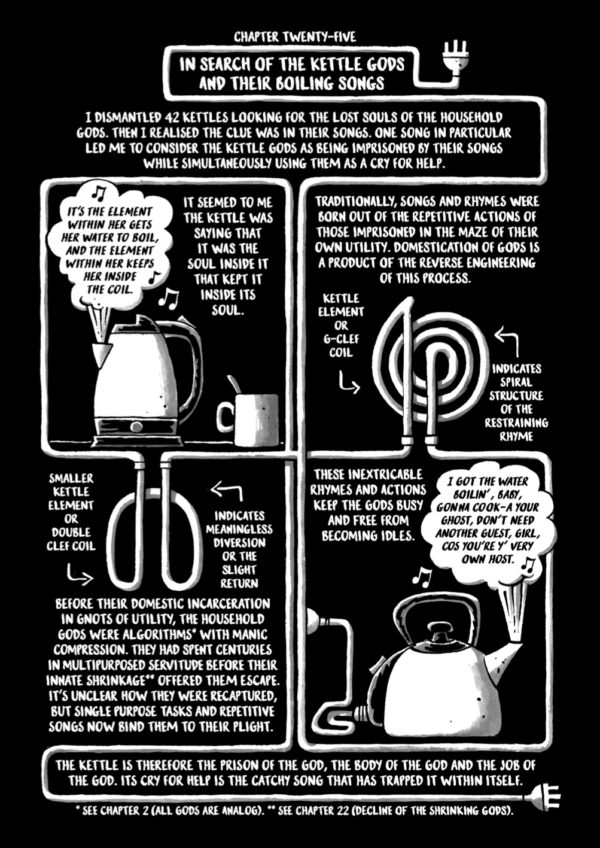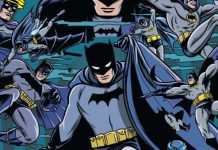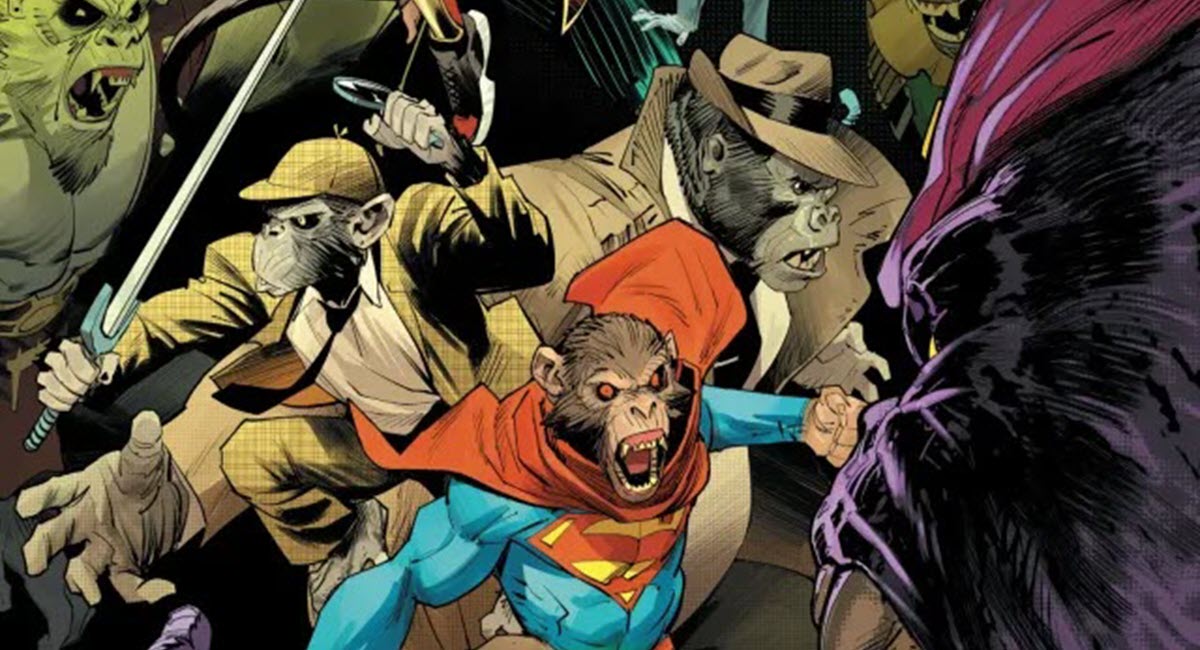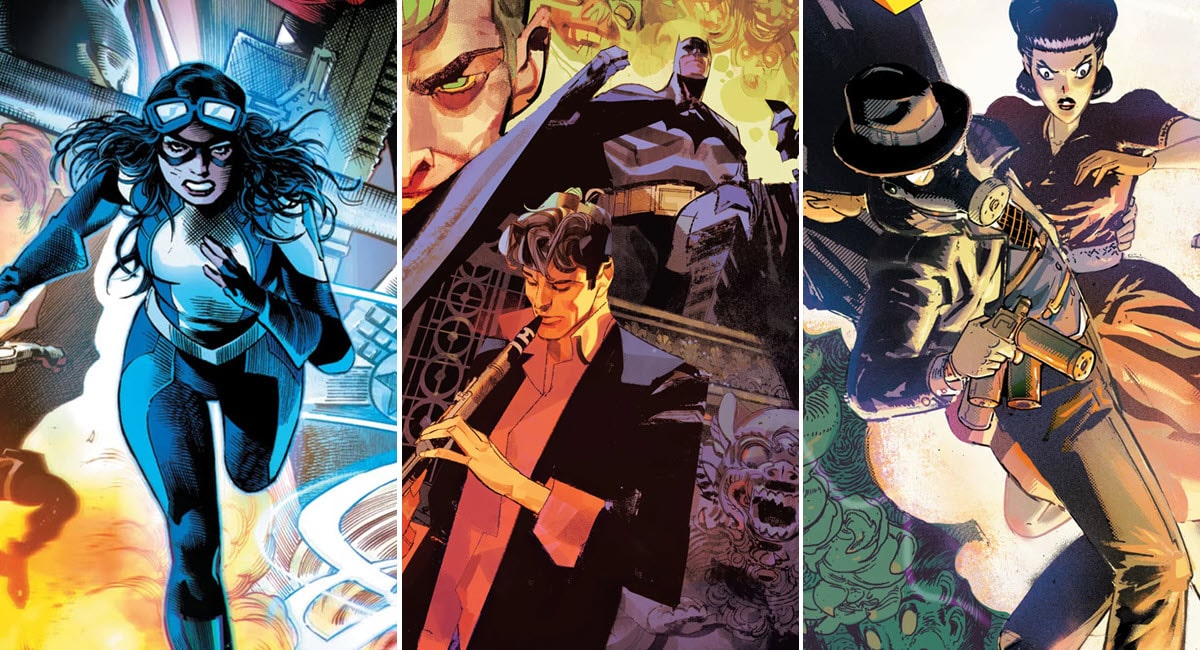The Book of Forks
By Rob Davis
SelfMadeHero
Taken at face value as you read the series, it’s hard to know exactly what to make of The Motherless Oven Trilogy. Rob Davis has crafted a curious adventure that might be described as falling into the genre of dystopian fiction, but that does his story a bit of a disservice. At a time when dystopian fiction is pretty literally a dime a dozen and infected by too many ill-conceived worlds that portray their themes depressingly literally, Davis has crafted something that, detail-wise, is entirely in its own area. It evokes both A Clockwork Orange and Alice In Wonderland, and yet transcends both. And with the final entry, The Book of Forks, Davis brings the series to an intellectual and creative height that is wholly unexpected.
The series starts with The Motherless Oven, introducing Scarper Lee, who lives in a world that doesn’t really make sense. It’s a world where sudden showers of knives from the sky threaten the lives of anyone caught out in them. It’s a world where children create their parents, and their parents are inanimate objects that appear to have come to life. It’s a world where you know your death day. And Scarper knows his. He’s got about a week.
Those are just some of the more obvious details of Davis’ world, an urban zone that is reminiscent in tone to The Village (from Patrick McGoohan’s The Prisoner), an enclosed, limited space where people live and the action plays out, but which feels artificial and almost a hallucination.
Scarper is trying to cope with his final week and gets mixed up with Vera Pike, a new girl in school who shows up at his door during a knife storm for no apparent purpose other than to babble at and ultimately confuse Scarper. She rapidly places herself within his life, though, coming between him and his best friend, and also introducing him to Castro, a boy with Medicated Inference Syndrome, which is hard to describe other than he has a mechanical dial hooked up to him that either regulates or causes frenzied fits.
It’s with this set-up that Scarper becomes poised to do a little exploring of the world he inhabits and is ultimately exiting from the following week. Vera drags Scarper and Castro on a journey through the cityscapes of the world they inhabit, and she has certain goals — find the place where the kids create their parents and then get the hell out of this world.
The beauty of Davis’ world is that what starts out as the nonsensical details of the world end up, after a certain time reading, becoming the inner logic of the plane these kids wander in. If it doesn’t make empirical sense, it all does have an internal logic that flows with the plot as much as, say, a yellow brick road. By presenting these entirely alien details and circumstances, Davis is able to focus on the universality of growing up, of navigating the world you live in, of figuring out other people, of facing your own mortality.
In the second book, The Can Opener’s Daughter, Davis reveals the back story of his Vera Pike, focusing on her relationship with her parents, most notably her weather-clock mother and the political power she wields. From there, we pick up on the cliffhanger from the previous book and follow Vera and Castro as they attempt to save the life of Scarper.
In the third and final book, The Book of Forks, Davis winds down his epic in two separate storylines that move forward to crash into each other for a dramatic conclusion. In one plot, Scarper and Vera are fleeing across the world and barreling through borders in order to find Castro. Each location brings them closer not only to Castro’s location but the nuts and bolts of the system that they live in.
In the other, Castro awakens to find himself in a place called the Power Station, where everyone seems to speak another language. Incapable of being understood by the language barrier, Castro devotes his time to re-compiling his life’s work, his Book of Forks, in order to map out his proposed history of the world and reveal the truth to the other residents. As part of this effort, Castro befriends one other resident, Poly, with whom he works to move past the language barrier and get help finishing his book.
Davis actually includes a third strand in this volume — pages from Castro’s Book of Forks. Encyclopedic in nature, it gives Davis the opportunity to present, in the plainest possible way, the extent and intricacy involved in his world-building in this series. Once you get the full scope of it, you’ll see that it leaves any other comic fantasy series in the dust with not only the level of sophistication in the structural aspects of the world he has built but the philosophical ones as well. One page isolated might sit as a bizarre bunch of descriptions, but as compiled throughout the story, each leads to the other and together make a clearer sense in describing what we’ve been seeing all along. In many ways, this is the key to the series, technically full of spoilers. At the same time, Davis’ explanations can be oblique, surreal, and pushing the reader in further directions towards concepts that exist far beyond the physical confines of the book. These pages both satiate the desire for some explanation and provide infinitely more mystery that helps the series retain its strengths beyond its last page.
With this series, Davis has created the ultimate alien landscape that challenges its readers to learn a new language in order to place this culture’s affectations and logic into an understandable context. Davis’ black and white artwork is often delirious and absurd as it mixes strange imagery with straightforward human action. It’s both challenging and explosively familiar at the same time.
In the end, though, the series isn’t about the weird little details or the expansive mythology, but about the commonality between the characters. It’s about finding common ground and making connections, building real communities through real shared ideas and thoughts.
Emotionally, this is something that the characters extend to the readers, and I think common ground is found there too. We may not face knife storms, but we most certainly face similar doubts and challenges as Scarper and Vera and Castro. It just might be a little more exciting with the knife storms.


